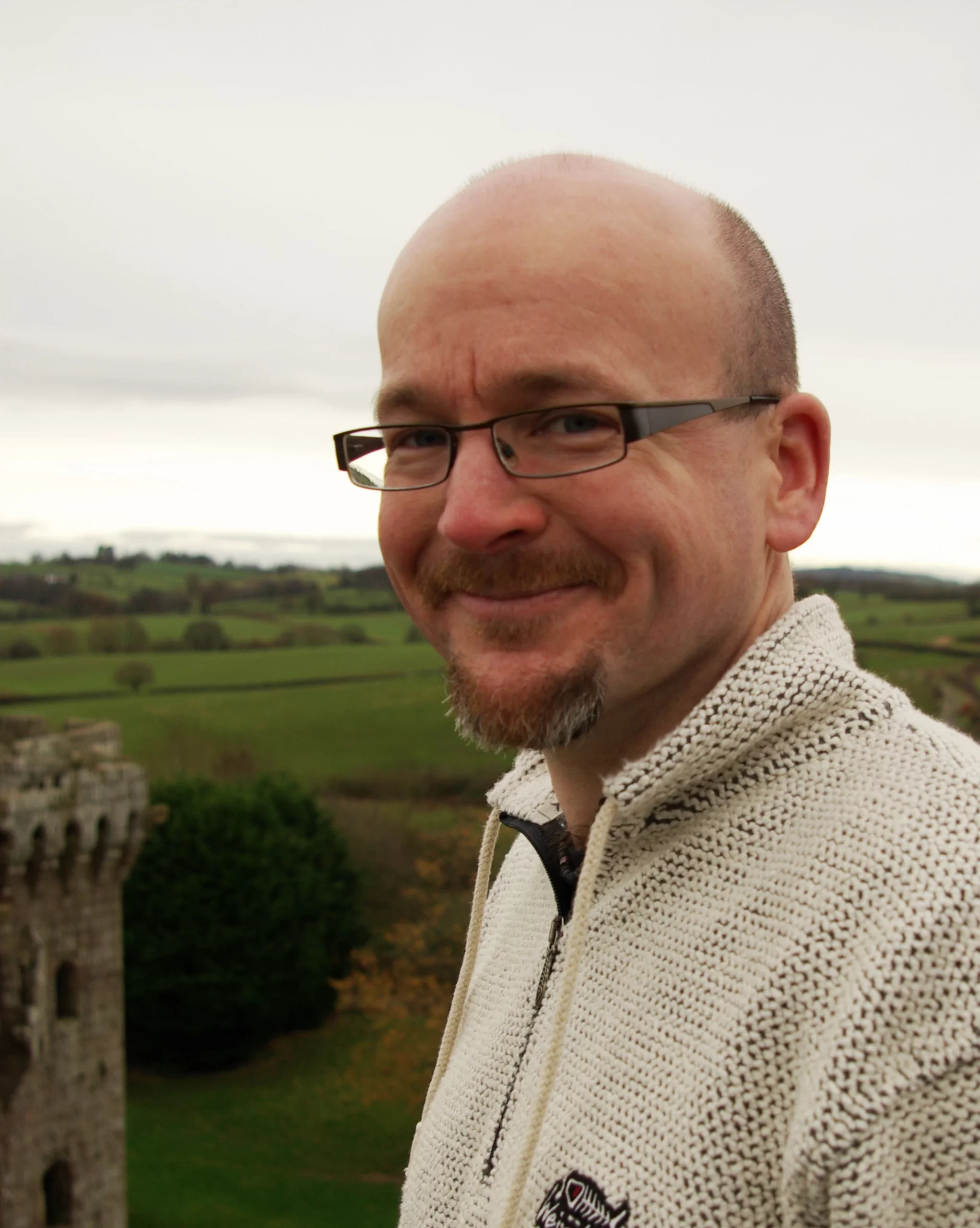On the blog today, I’m proud to bring you an interview with TIM LEBBON. For those you who don’t know, Tim is a New York Times-bestselling writer from South Wales, in the UK. He’s had over forty novels published to date, as well as hundreds of novellas and short stories. His latest novel is the eco-horror The Last Storm. Other recent releases include Eden, the Relics trilogy, the award-winning novel Firefly: Generations, and the collection All Nightmare Long.
He has won four British Fantasy Awards, as well as Bram Stoker, Scribe and Dragon Awards, and has been shortlisted for World Fantasy, International Horror Guild and Shirley Jackson Awards.
The movie of his novel The Silence, starring Stanley Tucci and Kiernan Shipka, debuted on Netflix April 2019, and Pay the Ghost, starring Nicolas Cage, was released Halloween 2015.
Tim is currently developing more novels, short stories, audio dramas, video games, and projects for TV and the big screen.
So now we know home much of a big player Tim is in the world of horror publishing, let’s dive into the interview.
To me, your novels always have a cinematic feel. They can deal with big ideas, but have relationships and characters at their heart. But what or who are the biggest influences on your writing style and approach to storytelling?
Honestly, Stephen King. Surprise, eh? It was James Herbert who made me fall in love with horror (my mother gave me The Rats to read when I was ten year old), but King made me want to be a writer. I guess another big influence is my love of nature and the countryside, and a lot of my work is set in the country as opposed to urban settings––not exclusively, but largely. I think this is why I love worldbuilding so much too … landscape is really important to me in my writing, and surroundings, and the world against which, and in which, the story is set. Making up my own worlds––nature, landscape, setting––as opposed to writing stories in recognisable worlds is so much fun. In fact right now I’m starting work on a new fantasy novel, and that worldbuilding spark has been lit all over again!
You’ve been writing since you were a lad, but what was the first thing you wrote that made you think ‘I’m a writer’?
A short story when I was 21, called Black Heart. I entered it for a competition and though I didn’t place anywhere, I had a feedback slip which was very encouraging, and it was from that moment that I was writing with a view to be published. It was years later that I started to actually believe I could make a career at it, but that was the moment I really started to take my writing seriously.
What’s the hardest thing about being an author with over 40 books under your belt, as well as movie adaptations?
Ha! Everything. Though I adore my job … I don’t find writing easy, the business can beat you about a bit, there’s often doubt about what comes next, and there are occasional money worries (there’s no such thing as a monthly paycheck!). But I love what I do, and after writing for 17 years for a living (and having been published for 10 years before that), I think I’m pretty much unemployable as anything else. I’m really spreading my wings lately with audio dramas, a computer game, a comic, and some screenwriting, and learning new stuff is great fun. It’s all storytelling! And that’s the thing for me … I love telling stories, in whatever media suits.
On the flip side, what’s the best thing about being an author?
I’m my own boss (mostly). I keep my own hours. The commute is good. And as I said above … I get to tell stories. And people sometimes pay me for it!
Your short story ‘Pay the Ghost’ and novel The Silence were both adapted into movies. What’s it like giving over your creative babies to other writers?
I’ve had quite a few screenplays written by others based on my work (these are the only two produced, so far), and you know what’s happening when you’re going in – the story will change, and the characters, but however good or bad the adaptations might turn out, your book or story is always there. So I’m always aware what will happen, and ready … and if the script turns out good, it’s a bonus! The potential reward can’t be ignored, too, of course. Just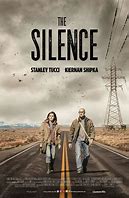 lately I’ve been trying to adapt my own work, with a script for The Hunt and a pilot for Eden out there right now. And I’ve found that I REALLY love adapting my own books. I believe that no piece of writing is ever really finished, it’s just published and you move on. Adapting a novel of my own means I get to immerse myself in the story again, change direction, expand and let the idea breathe some more. It’s really great. And if someone buys it and makes it, even better!
lately I’ve been trying to adapt my own work, with a script for The Hunt and a pilot for Eden out there right now. And I’ve found that I REALLY love adapting my own books. I believe that no piece of writing is ever really finished, it’s just published and you move on. Adapting a novel of my own means I get to immerse myself in the story again, change direction, expand and let the idea breathe some more. It’s really great. And if someone buys it and makes it, even better!
On the flip-side, you seem to be a go to guy for movie and TV novelisations, with novels playing in the Aliens, Predators, Hellboy, Firefly and 30 Days of Night worlds. Aliens is probably my favourite movie, and your novel Out of the Shadows is my favourite of all that franchise’s novelisations. The dog-aliens and their ship, I thought, really added to the background mythos of Aliens. However, I imagine entering the Aliens (as well as the Predator) universe, which is so beloved, could be quite daunting. What are the challenges of stepping into a pre-existing story universe? Is it constraining or liberating?
ALIENS is also my favourite movie. Of all time. So writing an Alien novel was a dream project for me. I haven’t done so much tie-in work lately, but I’m always open to doing more. Novelisations and original novels in others’ IP are different, of course. You’re pretty restricted with novelisations to the screenplay, expanding and filling it out but the story is there. But with original novels in existing universes, I’ve found that every project is different when it comes to restrictions and input from owners of the IP or those who’ve licensed it. When I wrote a Star Wars novel the freedom I had was surprising, other than having to fit into the era I was writing in (and the fact mine was the earliest novel in the timeline helped, too). Generally if you’re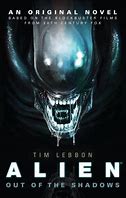 asked to write a tie-in novel it’s because the editor knows you can work within a certain framework, to a certain quality, while also allowing your story to expand it and help it grow. Playing in someone else’s sandbox––especially with fan-favourites like Star Wars, Firefly, Predator, Alien etc––does bring its own challenges. I’ve never written in a world I don’t know and enjoy, but I’m also not as much of a dedicated fan as many people, and sometimes fan reaction can be a bit eye-opening. But I love the challenge of taking on a project that might push me outside my comfort zone. I could write pages about this, but to try and be concise … I don’t think it’s constraining or liberating, just different. And it’s all storytelling!
asked to write a tie-in novel it’s because the editor knows you can work within a certain framework, to a certain quality, while also allowing your story to expand it and help it grow. Playing in someone else’s sandbox––especially with fan-favourites like Star Wars, Firefly, Predator, Alien etc––does bring its own challenges. I’ve never written in a world I don’t know and enjoy, but I’m also not as much of a dedicated fan as many people, and sometimes fan reaction can be a bit eye-opening. But I love the challenge of taking on a project that might push me outside my comfort zone. I could write pages about this, but to try and be concise … I don’t think it’s constraining or liberating, just different. And it’s all storytelling!
Your non-fiction book Run, Walk, Crawl is about discovering endurance sports in middle age, and everyone should go read it. I was very dyslexic as a kid and sports were one of the few ways I could be good at something. However, later I somehow managed to get a PhD in linguistics and wrote novels, and I found a synergy between creative thinking and, there is no other way to put this, the tripiness and flow of exhaustion. Have you found any synergies between fitness/sport and writing?
Glad you like the book! And I’m so glad you found that synergy. On the surface, my training regime and writing are pretty separate. People often ask if I work as I’m exercising (thinking 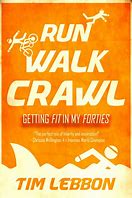 through plot points, etc) and I often surprise them by saying no, hardly at all. If I’m out for a 3 hour bike ride, it’s rare I even think about work … at least on the surface. But the true link between writing and training for me is in the mind, and the way exercising blows away cobwebs, keeps me fit, and prepares me for sitting or standing at my desk and working. Run Walk Crawl was a great collision of the two. Sometimes, though, there’s a direct link with my love of endurance sport and much of my writing. My novel The Hunt is inspired directly by my training and racing, and it’s also fed into Eden and other novels and stories. Write about what you know, right?
through plot points, etc) and I often surprise them by saying no, hardly at all. If I’m out for a 3 hour bike ride, it’s rare I even think about work … at least on the surface. But the true link between writing and training for me is in the mind, and the way exercising blows away cobwebs, keeps me fit, and prepares me for sitting or standing at my desk and working. Run Walk Crawl was a great collision of the two. Sometimes, though, there’s a direct link with my love of endurance sport and much of my writing. My novel The Hunt is inspired directly by my training and racing, and it’s also fed into Eden and other novels and stories. Write about what you know, right?
The Last Storm and Eden both have strong ecological themes as well as strained child-parent relationships at their heart. Was that a conscious thematic mirroring?
The climate change aspect was very conscious, yes. They say to write about what scares you, and my family in peril has frightened me since my kids were born –– and climate change feels like the greatest threat to us right now. I’m a huge lover of nature. We live in a beautiful part of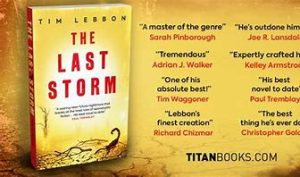 the world, and I swim, bike and run in gorgeous countryside, so nature has always formed a strong background to my writing, and often landscape feels like one of the characters. So it’s only natural for me to write about ecological matters. The strained relationships were less intentional, I guess they just suited the stories and gave characters interior conflicts as well as conflicts against exterior forces, which made writing them much more interesting.
the world, and I swim, bike and run in gorgeous countryside, so nature has always formed a strong background to my writing, and often landscape feels like one of the characters. So it’s only natural for me to write about ecological matters. The strained relationships were less intentional, I guess they just suited the stories and gave characters interior conflicts as well as conflicts against exterior forces, which made writing them much more interesting.
You write across genres. Horror and apocalyptic, obviously, but also urban fantasy with The Relics trilogy and non-fiction with Run, Walk, Crawl. When considering a new project, does the idea come first or are there other factors involved for you (the market, publisher, agent)?
I love writing across genres, and I’ve always got ideas of what might come next. Often that’s dictated by career path (for instance, if I owe Titan a new novel it’s usually going to be horror). But with a book like The Hunt, I wrote that entirely on spec because I thought it was a great 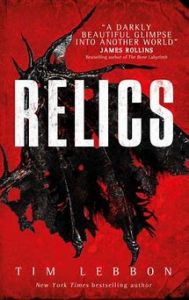 idea and had lots of potential. And I’m about to start a new novel on spec now, something a bit different, because I love the idea. Writing professionally is a constant balance between the art and the commerce, and oh hell I spend so much time talking to my writer friends about that. I do this for a living, and the need to continue earning money is fed by my love of what I do and my desire to keep doing it for the rest of my life. That means the commerce side of things is ever-present in my thought processes, but as much as I can I continue to write what I love, what interests me, and what sets my imagination on fire. Right now I’m making notes on a new fantasy novel, and I’m so excited about diving back into new worlds, new creatures … so exciting! But of course, at the back of my mind there’s that constant whisper: Will this sell?
idea and had lots of potential. And I’m about to start a new novel on spec now, something a bit different, because I love the idea. Writing professionally is a constant balance between the art and the commerce, and oh hell I spend so much time talking to my writer friends about that. I do this for a living, and the need to continue earning money is fed by my love of what I do and my desire to keep doing it for the rest of my life. That means the commerce side of things is ever-present in my thought processes, but as much as I can I continue to write what I love, what interests me, and what sets my imagination on fire. Right now I’m making notes on a new fantasy novel, and I’m so excited about diving back into new worlds, new creatures … so exciting! But of course, at the back of my mind there’s that constant whisper: Will this sell?
Okay, on to a more fun tip. Was there a book, movie or experience that was your gateway to horror?
As I mentioned above, my mother gave me The Rats by James Herbert when I was 10 or 11. That’s a pretty adult book, but I was reading loads by then. And it never did me any harm.
Which character from someone else’s fiction would you most like to be?
Arthur Dent from Hitchhikers’ Guide to the Galaxy. A nice dressing gown, and what an adventure!
Is there a forthcoming or new release by another author you would recommend to readers?
I’m a big fan of Ray Cluley, and his collection All That’s Lost is brilliant. Also, the novel Full Immersion by Gemma Amor is powerful, shocking, and brilliant.
What does the next year of writing and publishing look like for you?
I have a novella called The Last Day And The First out from PS Publishing in July, and a new novel from Titan next year called Among The Living. I’m working on a load of stuff right now, including new novels, scripts, a comic, and other stuff. Keep an eye on my newsletter and socials for more info!
Can you tell us something about your current ‘work in progress’?
As mentioned above, I have several works in progress. But the novel I’m hoping to start soon is a very dark contemporary fantasy, something quite different for me, but I’m getting more and more excited about it and I can’t wait to leap into the writing. I’m still making notes and having loads of ideas, and letting the ideas brew and settle, but I’ll hopefully be starting soon. I’m seriously considering writing this one longhand, too (something I’ve only ever done with The Last Storm).
Where can people stalk you online like a serial killer, or like a well-adjusted human being, with manners and respect? Whichever you prefer?
Bit of both.
Twitter: @timlebbon
Facebook: tim.lebbon
Website: timlebbon.net
Newsletter: http://eepurl.com/cMWkf5
Dan: thanks Tim for doing the interview. I’m a big fan and it was a highlight to host you on my site.
This interview is sponsored by my novel Witchopper:
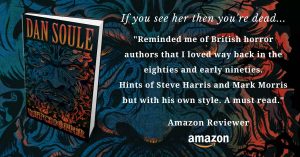 If you see her, then you’re dead…
If you see her, then you’re dead…
All Rob wanted to do was fit in at his new school after being torn from London so his parents could fix their marriage. But when Rob’s journalist father dragged him along to investigate the legend of the Witchopper for the local paper, her curse became their reality.
She was priestess to the pagan god of the wild wood, hanged by a rabid mob for her unspeakable crimes. Now, something far worse than the hell of high school is after Rob and his dad…
Click here to read it now: Witchopper


